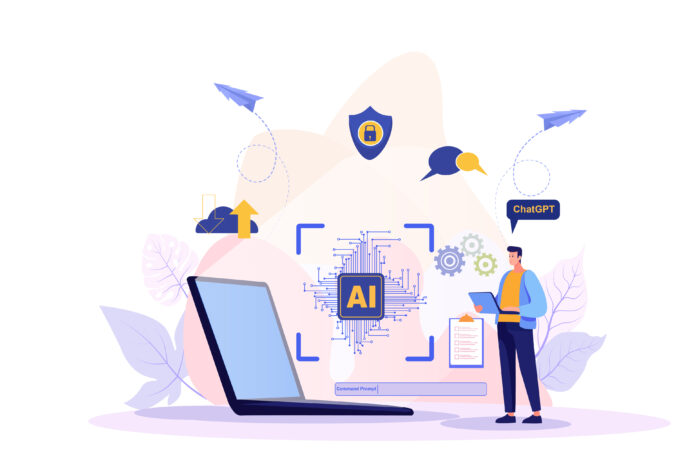
As emerging technologies continue to proliferate and the volume of data generated by businesses grows exponentially, the threat landscape in cybersecurity has become increasingly complex and challenging. Cyberattacks are evolving in both frequency and sophistication, making it critical for organizations to stay ahead of potential threats. For business leaders, the integration of AI into cybersecurity strategies is not just a trend—it’s becoming a necessity.
The Role of AI in Modern Cybersecurity
Artificial intelligence (AI) is transforming cybersecurity by enabling more proactive and intelligent threat detection and prevention. Traditional cybersecurity measures, while still important, are often reactive, meaning they address threats after they have already infiltrated the system. In contrast, AI-powered cybersecurity solutions leverage machine learning algorithms and data analysis to predict, identify, and mitigate potential threats before they can cause harm.
These AI systems can analyze vast amounts of data at high speeds, detecting patterns and anomalies that might indicate a cyber threat. For example, an AI system can monitor network traffic in real-time, identifying unusual patterns that could signify a potential breach. Once detected, the system can either alert human operators or automatically take steps to neutralize the threat, such as isolating affected systems or blocking malicious IP addresses.
Implications for Business Leaders
- Proactive Threat Detection: For business leaders, AI in cybersecurity offers a way to stay ahead of cybercriminals by identifying threats before they manifest into full-blown attacks. This proactive approach can save businesses from significant financial losses, reputational damage, and operational downtime.
- Cost-Effective Security: Implementing AI-driven cybersecurity solutions can be more cost-effective in the long run. While there is an initial investment, the automation and efficiency gained from AI can reduce the need for large cybersecurity teams and minimize the costs associated with data breaches and system repairs.
- Scalability and Adaptability: As businesses grow and the volume of data increases, AI systems can scale accordingly, adapting to new threats without the need for constant human intervention. This scalability is crucial for businesses that are expanding or operating in multiple regions with varying levels of cyber risk.
- Enhanced Decision-Making: AI can provide business leaders with actionable insights based on real-time data analysis. This enhanced decision-making capability allows leaders to allocate resources more effectively, prioritize cybersecurity initiatives, and develop a more robust security posture.
The Challenges of AI in Cybersecurity
While AI presents numerous benefits, it also comes with its own set of challenges.
- Bias in Algorithms: AI systems are only as good as the data they are trained on. If the training data is biased or incomplete, the AI may not detect certain types of threats, leaving businesses vulnerable. It’s essential for business leaders to ensure that their AI cybersecurity tools are trained on diverse and comprehensive data sets.
- False Positives: AI systems, while highly accurate, are not infallible. There is a risk of false positives, where legitimate activities are flagged as threats. This can lead to unnecessary disruptions and may cause business leaders to become overly reliant on AI, potentially overlooking other critical aspects of cybersecurity.
- AI vs. AI: Cybercriminals are also beginning to use AI to enhance their attacks, creating an ongoing arms race between defenders and attackers. Business leaders must recognize that AI is not a silver bullet; it must be part of a broader, multi-layered cybersecurity strategy that includes human oversight, regular updates, and continuous monitoring.
Preparing for the Future
As the cybersecurity landscape continues to evolve, business leaders must take proactive steps to integrate AI into their security frameworks. This includes investing in AI-powered tools, training cybersecurity teams to work alongside AI systems, and staying informed about the latest advancements in AI and machine learning.
Additionally, collaboration with AI and cybersecurity experts is crucial. By seeking professional consultations and building partnerships with leading cybersecurity firms, businesses can ensure they are equipped with the latest technologies and strategies to protect their data and operations.
Prepare for the Future
AI in cybersecurity represents a powerful tool for businesses looking to safeguard their operations in an increasingly digital world. By enabling proactive threat detection, cost-effective security, and enhanced decision-making, AI is helping to redefine what it means to be secure in the modern era. However, business leaders must also be mindful of the challenges and limitations of AI, ensuring that it is implemented as part of a comprehensive cybersecurity strategy.
In an age where data is one of a company’s most valuable assets, investing in AI-driven cybersecurity is not just an option—it’s a necessity. Don’t wait for a cyberattack to happen before taking action. Reach out to cybersecurity experts today to explore how AI can help protect your business from future threats. After all, the cost of a breach far outweighs the investment in prevention.




